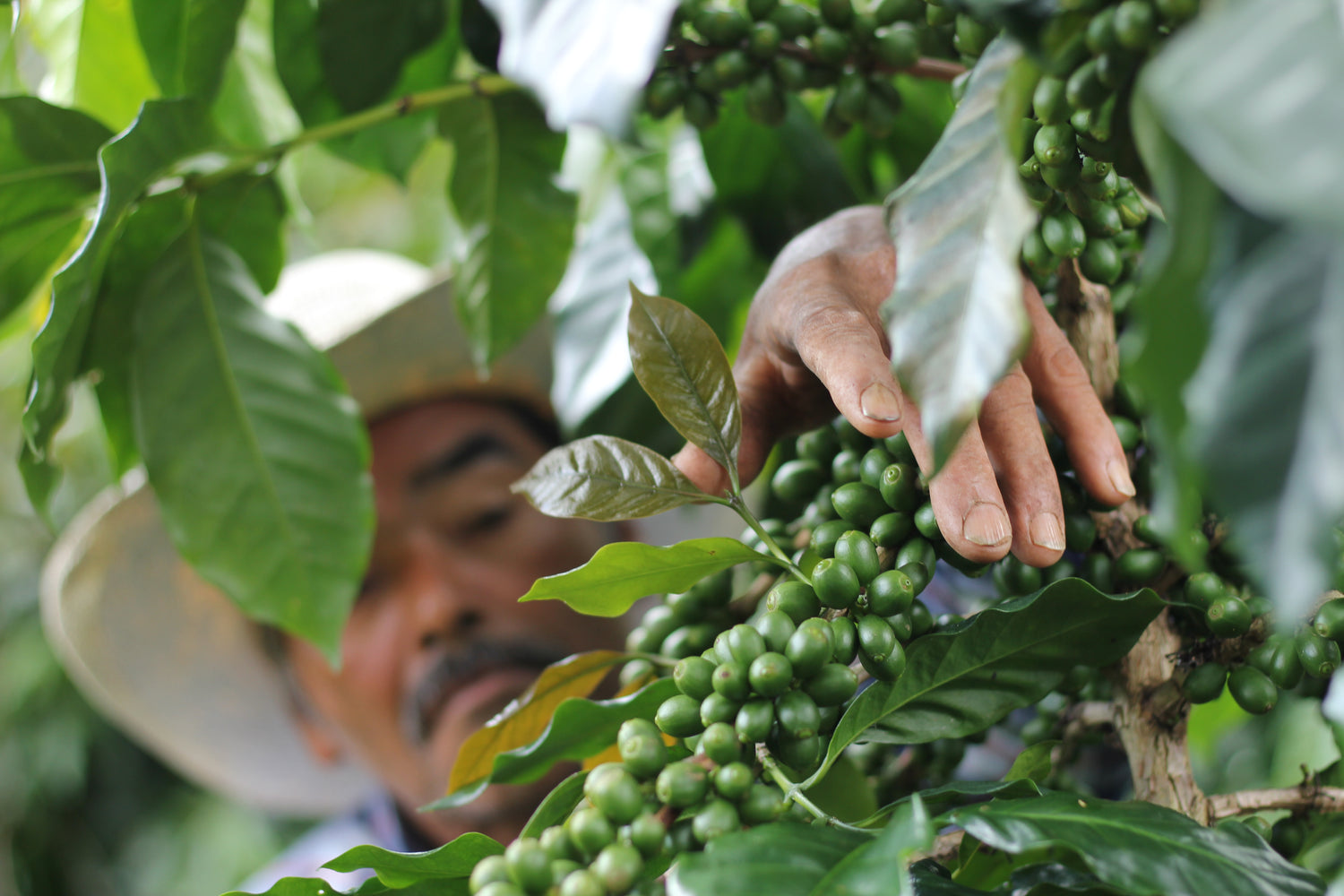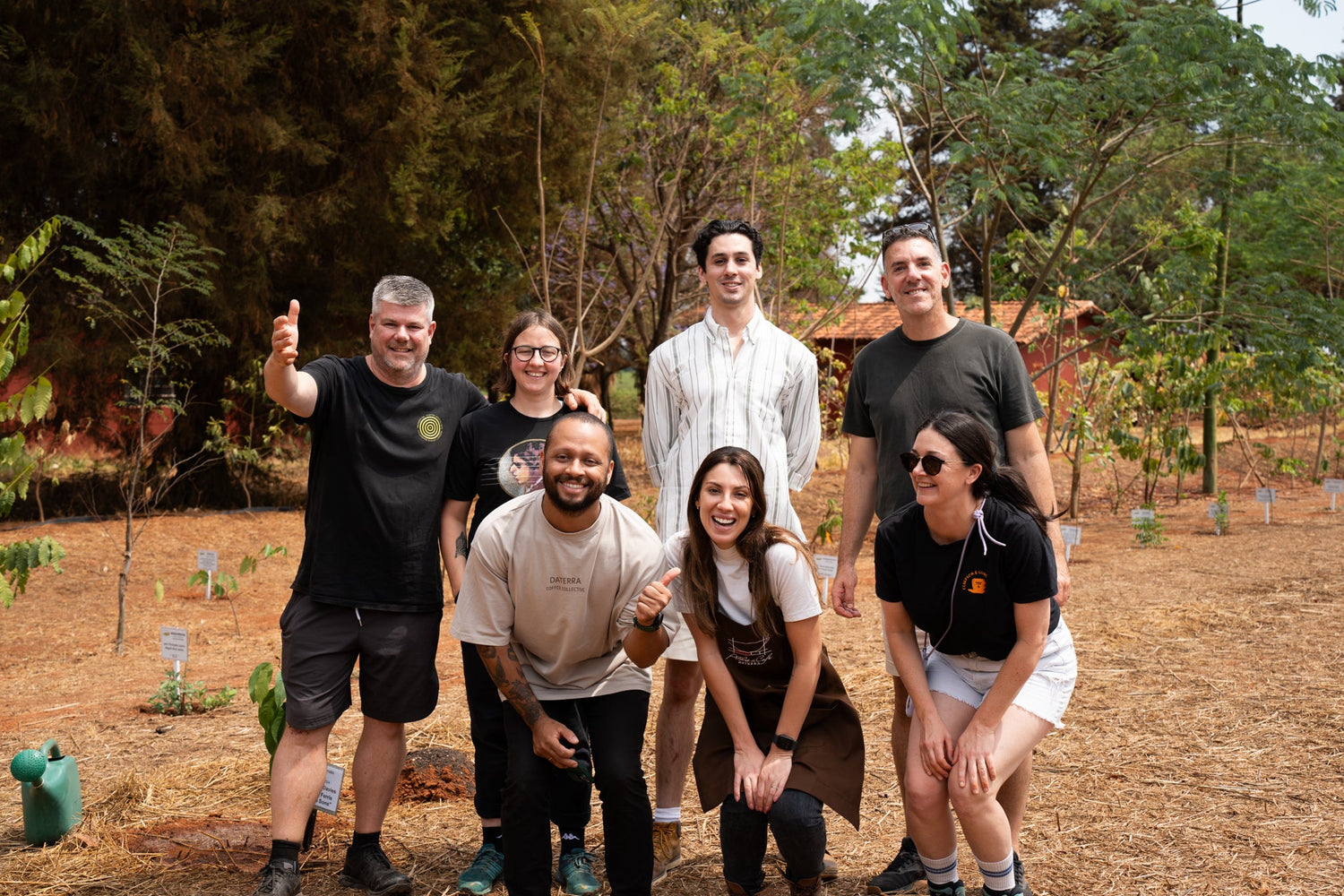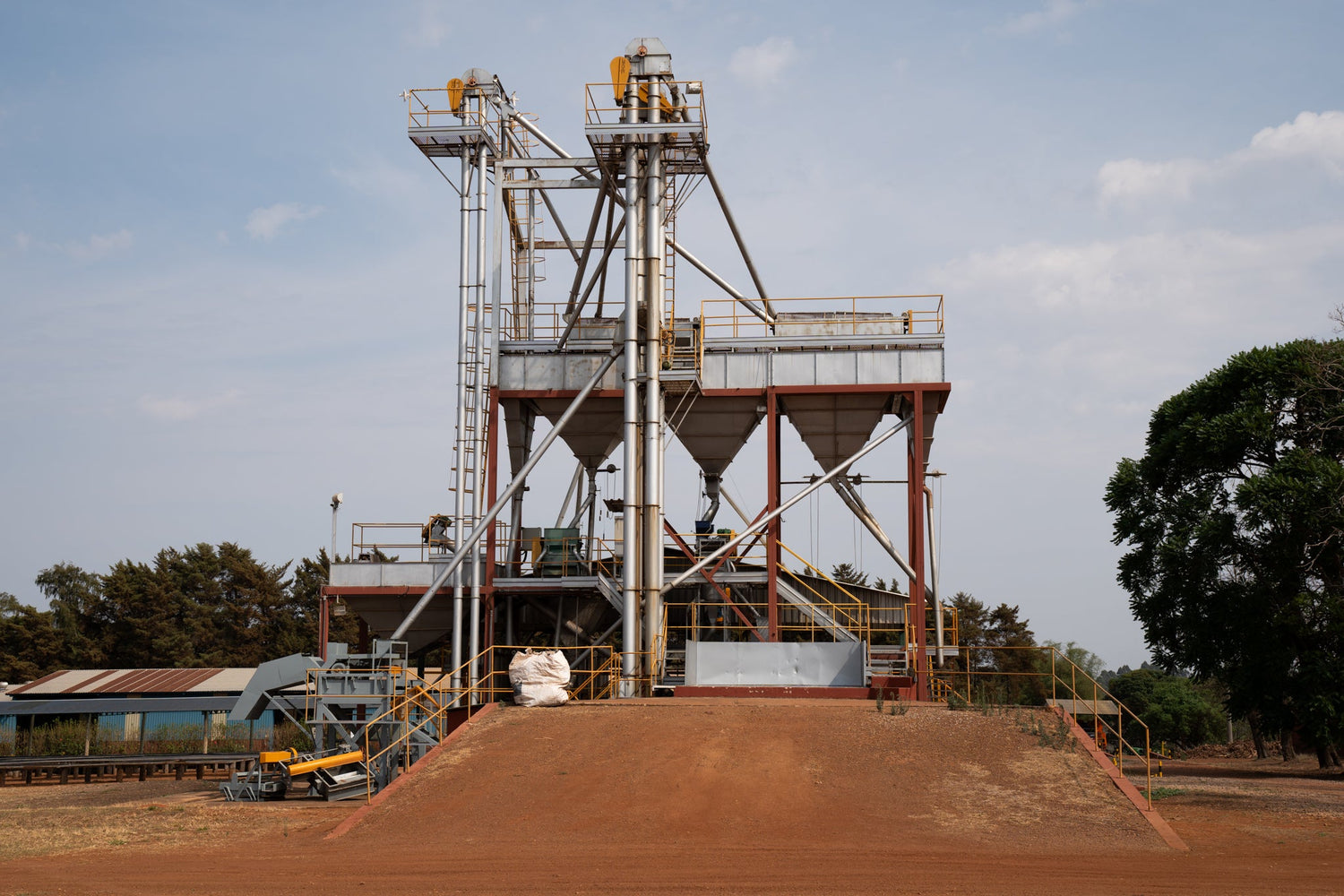Organic is not just a buzzword here.
This is the story of the COMSA Cooperative (Café Orgánico Marcala); where the term “organic” is instilled in their business model, culture and value system in more ways than one. Their organic growing principles are a foundation for their coffee production; their approach to learning and developing new practices happens intrinsically and organically. Moreover, their membership has grown organically, from 69 producers in 2001 to more than 1,600 and counting today.
We first met Suita Diaz representing COMSA Cooperative in 2017 when we bought 20 bags of coffee; fast forward to 2022 and we are up to about 150 bags. You may recognise the name - the coffees from COMSA are a key feature in our seasonal Broadway Blend, bringing a beautifully balanced cup profile that makes for a lovely espresso and crowd-pleasing flat white; their coffees have been showcased as The Fields and also as our Showstopper at the London Coffee Festival in 2022. The coffees are a true representation of quality - respectful production centred around organic principles, and commitment to their community at its core.

Image by COMSA Cooperative
Sustainability is not just a buzzword at COMSA. COMSA Coop is owned by the coffee farmers; and they have built their business for the cooperative members and community to thrive through sustainable coffee production. There is more financial security, opportunity to learn and develop individual farms, processing methods and biodiversity. They provide training in organic farm regeneration, water management and wildlife conservation which all contribute to the long term sustainability of what they do. Farmers like Mauricio Peñalba of Finca La Innovación, are also rewarded for any extra efforts put into producing quality coffee, not just monetarily, but by getting their names in lights on the bag of coffee and for roasters like us to be able to tell their story.

Image by COMSA Cooperative
At the heart of COMSA Coop is the research farm and production facility called Finca La Forteleza. This is where people come to learn the principles of organic farming and preventative measures to combat climate change and damaging diseases like leaf rust. The research farm is so highly regarded that coffee producers from all over Central and South America, or even other agricultural industries like cacao growers, come to learn the main principles here and apply them to their own organisations.
The example of this all coming together is the coffee from Mauricio Peñalba of Finca La Innovación. As implied by the naming of the farm, Mauricio is determined to improve production, biodiversity and processing standards. This is the fourth year we have bought from Finca La Innovación, adding this bright and vibrant washed lot as a single origin delight, as a contrast to the fruit-forward naturals we have often used as The Fields. Amongst his coffee, Maurico allows fruit and pine trees to grow, creating a unique micro-climate, home to native birds and also generating useful organic matter to be repurposed as fertiliser. Having worked with the COMSA (Café Orgánico Marcala) Cooperative team to develop his own organic compost, Señor Peñalba has seen the quality and consistency of his coffee dramatically improve.

Image by COMSA Cooperative
The promotion of peer-to-peer learning means there is an opportunity to work together as a community to share knowledge and ideas. This can, in turn, be fed back into the research centre and tested more across different farms or sites, which, as a group, is more effective when you are coming up against the challenges of climate change and being able to adapt.



